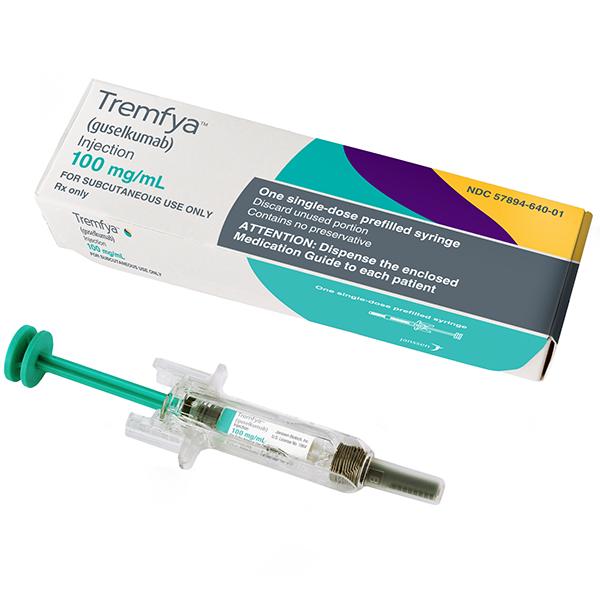Guselkumab Disease Interactions
There are 2 disease interactions with guselkumab.
Interleukin inhibitors (applies to guselkumab) infections
Moderate Potential Hazard, Moderate plausibility. Applicable conditions: Infection - Bacterial/Fungal/Protozoal/Viral
There have been reports of serious infections, including infections with opportunistic pathogens, and reactivation of latent infections in patients receiving interleukin inhibitors. Treatment with these agents should not be initiated in patients with an active infection until the infection resolves or is adequately treated. Caution is recommended when considering the use of interleukin inhibitors in patients with a history of recurrent infections, underlying conditions which may predispose them to infections, or chronic, latent, or localized infections.
Interleukin inhibitors (applies to guselkumab) tuberculosis
Moderate Potential Hazard, Moderate plausibility. Applicable conditions: Tuberculosis -- Active, Tuberculosis -- Latent, History - Tuberculosis
Before initiating certain interleukin inhibitors, patients should be screened for latent tuberculosis infection with a tuberculin skin test. Do not administer these agents to patients with an active tuberculosis infection. Patients testing positive in tuberculosis screening should be treated by standard medical practice prior to therapy. Anti-tuberculosis therapy should be considered prior to initiation of therapy in patients with a past history of latent or active tuberculosis in whom an adequate course of treatment cannot be confirmed, and for patients with a negative test for latent tuberculosis but having risk factors for tuberculosis infection.
Switch to professional interaction data
Guselkumab drug interactions
There are 317 drug interactions with guselkumab.
More about guselkumab
- guselkumab consumer information
- Check interactions
- Compare alternatives
- Reviews (113)
- Side effects
- Dosage information
- During pregnancy
- Drug class: interleukin inhibitors
- Breastfeeding
- En español
Related treatment guides
Drug Interaction Classification
| Highly clinically significant. Avoid combinations; the risk of the interaction outweighs the benefit. | |
| Moderately clinically significant. Usually avoid combinations; use it only under special circumstances. | |
| Minimally clinically significant. Minimize risk; assess risk and consider an alternative drug, take steps to circumvent the interaction risk and/or institute a monitoring plan. | |
| No interaction information available. |
See also:
Further information
Always consult your healthcare provider to ensure the information displayed on this page applies to your personal circumstances.


